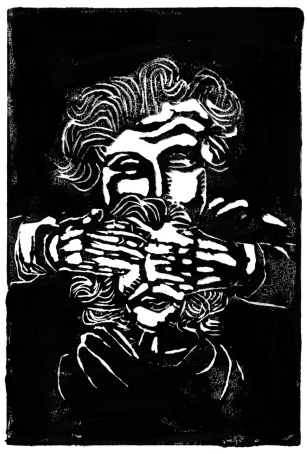
Isn’t it interesting that the great definer of American-ness, the man who heard it singing, Walt Whitman, was a guy from Brooklyn, a place many would say has little in common with America?
Did defining America, hearing it sing, have something to do with his tendency to ask questions? Did he start by asking, “What is America?”? Isn’t this question often asked by people from Brooklyn?
Wasn’t there something fundamental about Whitman’s questions? Is that why I as a writer remember his poem “What Am I, After All?”
What am I after all but a child, pleas’d with the sound of my own name?
But for a writer, didn’t Whitman ask even more fundamental questions, such as these?
What think you I take my pen in hand to record?
The battleship, perfect-model’d, majestic, that I saw pass the offing to-day under full sail?
The splendor of the past day? Or the splendor of the night that envelops me?
Or the vaunted glory and growth of the great city spread around me?
And how does Whitman answer this in one word? What is the next line? Isn’t it “—no”?
Aren’t we driven by a fear of being nobody? A fear of the answer to the question: “Who am I?”? Isn’t this why, when facing arrogance, the question of choice is “Who the hell do you think you are?”? Who can answer that one for sure? But aren’t there worse questions? Even if you found that you were nobody, would that be so terrible? Wouldn’t it still be better than not existing at all? Is it so bad to be a nobody among nobodies? Is that what the poet Emily Dickinson thought when she wrote her poem “I’m Nobody! Who are you?”?
Are you—Nobody—Too?
Then there’s a pair of us?
“Who is it?”